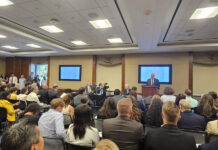The 2020 war between Armenia and Azerbaijan had a detrimental impact of historic proportions on Armenia’s destiny. The human and territorial losses were as discouraging as the isolation which was the result of the international community’s indifference and silence.
Regional and global developments after the war created new political factors and new perspectives for Armenian diplomacy.
The new attack by Azerbaijan on September 13, 2022 and its occupation of Armenian territory in the regions of Jermuk, Sotk, Vardenis and other border areas gave all indications of the start of an all-out war, which fortunately did not materialize, thanks to the warnings of the United States, France, and European Union as well as the positive posture of the Islamic Republic of Iran.
Armenia is a military ally of Russia, and a member of the Collective Security Treaty Organization (CSTO), which were supposed to defend Armenia under treaty obligations, and defend Armenia’s sovereignty and territorial integrity.
Given Russia’s involvement in the war in Ukraine, the Armenian authorities would have understood the dire situation of Russia, if CSTO members did not rush to congratulate Azerbaijan, which is in theory an adversary of the CSTO, and in the case of CSTO member Belarus, had not provided military supplies to Azerbaijan.
The more sympathetic stance of the broader international community towards Armenia helped the latter to seek a more independent course of action. Minister of Foreign Affairs Ararat Mirzoyan’s direct questioning of his Russian colleague Sergey Lavrov in Astana as well as Nikol Pashinyan’s request of accountability from President Putin on October 31 at the Sochi summit regarding the full implementation of the November 9 declaration (return of Armenian POWs, the evacuation of the occupied zones of Armenia and the prevention of new attacks) are new indications that Armenia is pursuing an independent foreign policy.








